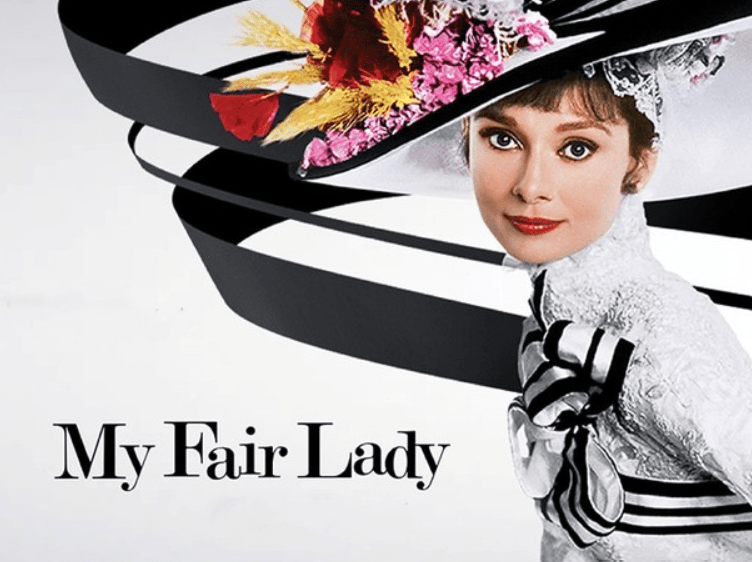The city of Boston, steeped in history and cultural vibrancy, has long been a hub for theatrical excellence. Among its recent theatrical offerings, none has captured the hearts and minds of audiences quite like the latest production of “My Fair Lady Boston“. This iconic musical, originally brought to life by the indomitable duo of Alan Jay Lerner and Frederick Loewe, has found a new stage in Boston, enchanting audiences with its timeless charm and sophistication.
Table of Contents
A Classic Reimagined for a Modern Audience

“My Fair Lady Boston” first debuted in 1956, is based on George Bernard Shaw’s play “Pygmalion.” The story revolves around the transformation of Eliza Doolittle, a Cockney flower girl, into a refined lady, under the tutelage of the phonetician Professor Henry Higgins. The musical explores themes of class, identity, and transformation, all set against the backdrop of early 20th-century London. The Boston production, while staying true to the original narrative and music, introduces subtle contemporary elements that make it resonate with today’s audiences.
The production’s creative team, led by a visionary director and a team of accomplished set designers and costume artists, has meticulously crafted a version of “My Fair Lady Boston” that honors its storied past while breathing new life into its characters and settings. The attention to detail is evident in every aspect of the production, from the ornate Victorian costumes to the intricately designed sets that transport the audience to Edwardian London.
Stellar Performances Bring Characters to Life
Central to the success of any production of “My Fair Lady Boston” are the performances of its leading actors. The Boston cast does not disappoint, delivering performances that are both powerful and nuanced. The role of Eliza Doolittle, a character that requires a delicate balance of vulnerability and strength, is brilliantly portrayed by a talented actress whose vocal prowess and emotive delivery captivate the audience from her first entrance. Her transformation from a street-smart flower girl to a poised lady is both believable and deeply moving, capturing the essence of Shaw’s original vision.
Professor Henry Higgins, a character often depicted as aloof and somewhat egotistical, is brought to life with a refreshing depth and complexity. The actor’s portrayal strikes a perfect balance between the character’s intellectual arrogance and his underlying humanity, making him a more relatable and sympathetic figure. The chemistry between Higgins and Eliza is palpable, adding an extra layer of emotional resonance to their evolving relationship.
Supporting characters, including the endearing Colonel Pickering and the roguish Alfred P. Doolittle, provide both comic relief and poignant moments, contributing to a rich tapestry of performances that make the production a standout.
Music That Transcends Time
One of the defining features of “My Fair Lady Boston” is its unforgettable score, composed by Frederick Loewe with lyrics by Alan Jay Lerner. The Boston production showcases the musical’s iconic songs with fresh arrangements that enhance their timeless appeal. From the jubilant “Wouldn’t It Be Loverly” to the spirited “Get Me to the Church on Time” and the introspective “I’ve Grown Accustomed to Her Face,” each number is performed with a passion and precision that underscores the enduring power of Lerner and Loewe’s work.
The live orchestra, under the direction of a skilled conductor, adds a layer of depth and dynamism to the musical numbers, creating an immersive auditory experience that complements the visual splendor of the production. The attention to musical detail ensures that both long-time fans of “My Fair Lady Boston” and those experiencing it for the first time are treated to a performance that does justice to the musical’s storied legacy.
A Cultural Milestone for My Fair Lady Boston
The arrival of “My Fair Lady Boston” in Boston represents more than just a theatrical event; it is a cultural milestone that highlights the city’s ongoing commitment to the arts. Boston has long been known for its vibrant performing arts scene, with its historic theaters and a rich tradition of supporting the arts. The success of this production is a testament to the city’s enduring love for theater and its ability to attract world-class talent and productions.
Moreover, “My Fair Lady” serves as a reminder of the timeless nature of classic works of art and their ability to resonate with audiences across generations. The themes of transformation, social mobility, and the complexities of human relationships explored in the musical are as relevant today as they were over half a century ago, reflecting the universal appeal of Lerner and Loewe’s masterpiece.
Conclusion: An Unforgettable Theatrical Experience
In conclusion, the Boston production of “My Fair Lady” is a triumph that pays homage to a beloved classic while offering a fresh and engaging experience for contemporary audiences. With its stellar cast, impeccable musical performances, and stunning production design, it captures the magic of Lerner and Loewe’s work and reaffirms the enduring appeal of one of musical theater’s greatest works. For anyone fortunate enough to witness it, this production is an unforgettable journey into the heart of a timeless story, and a testament to the power of the performing arts to inspire and uplift.

